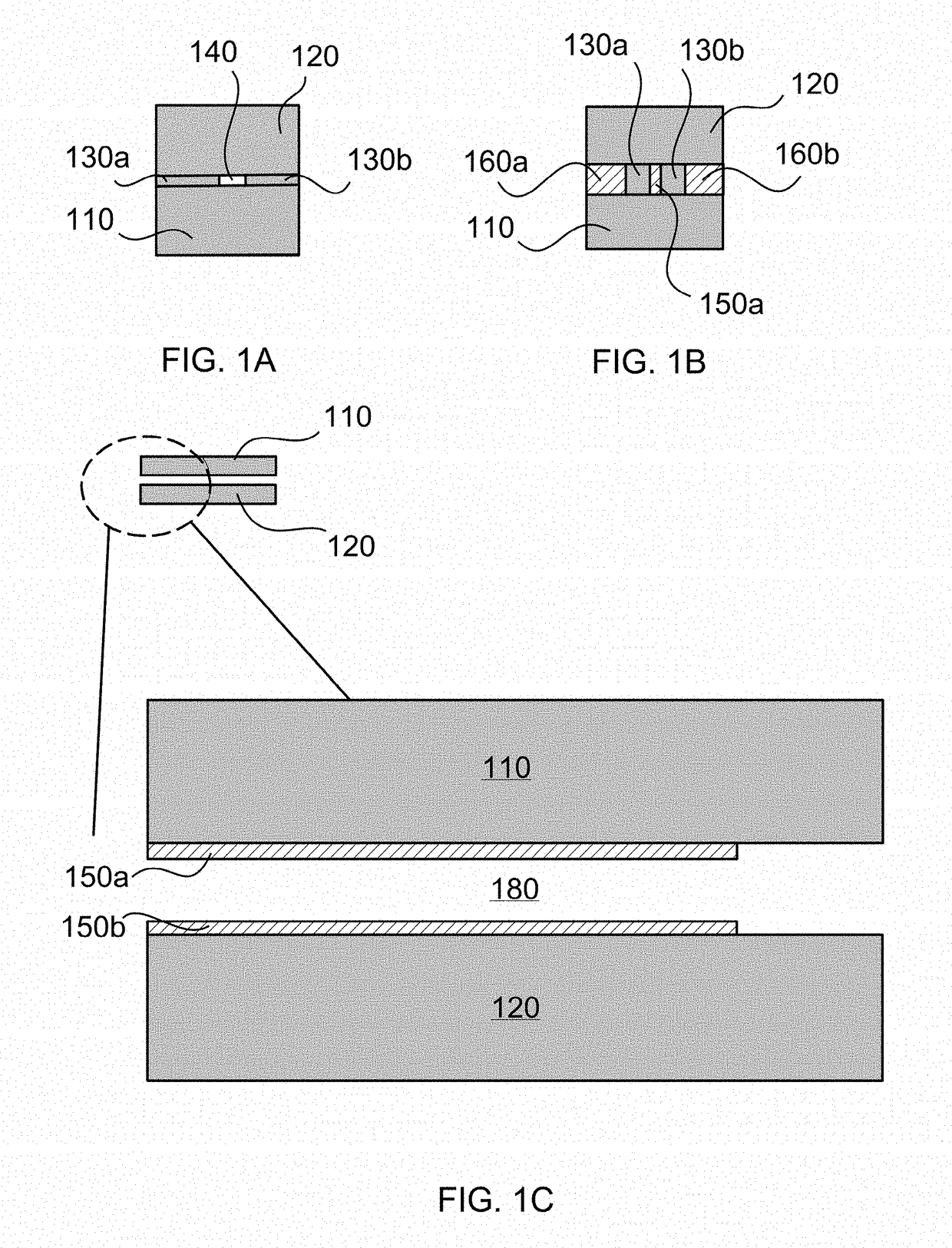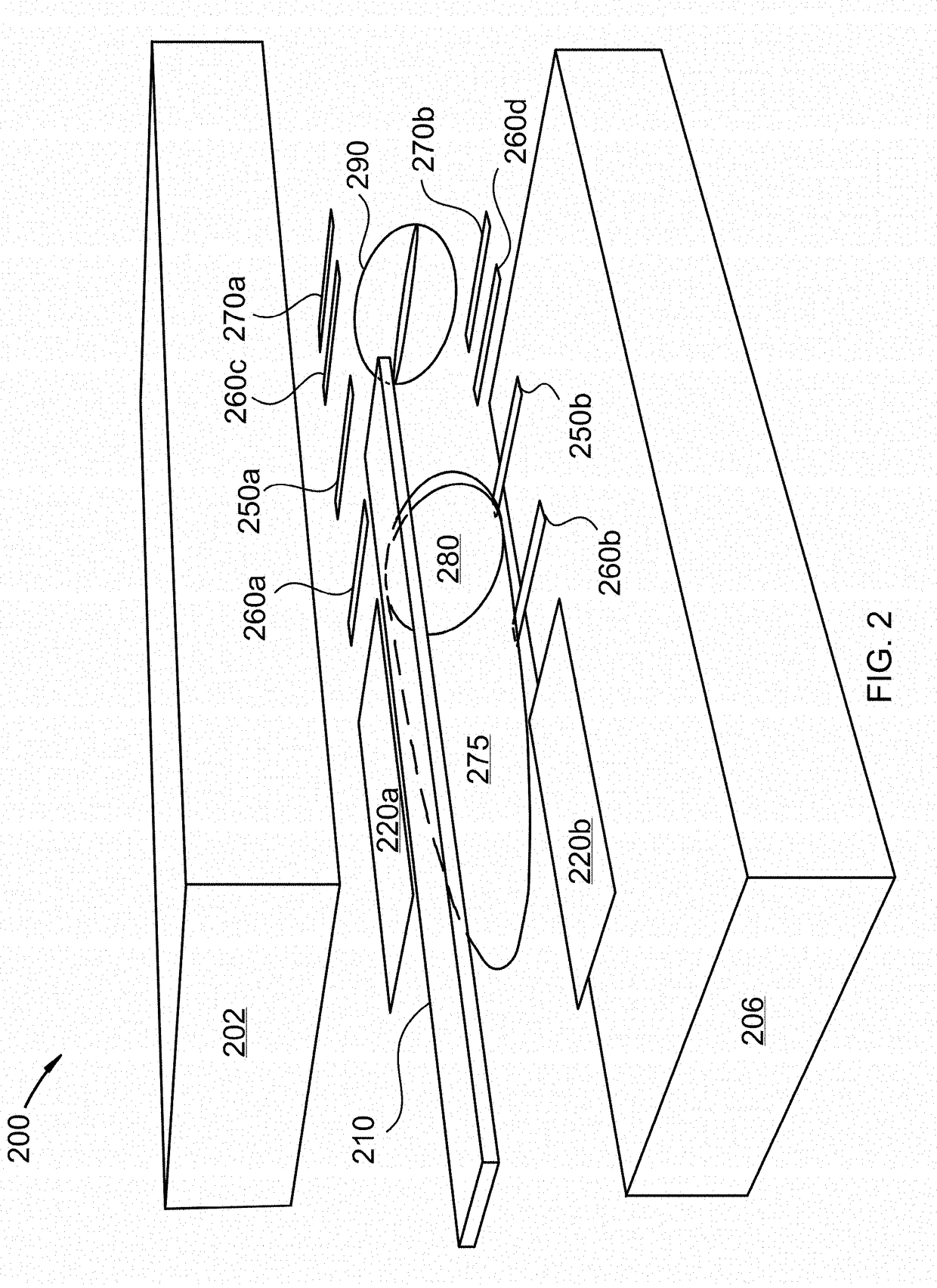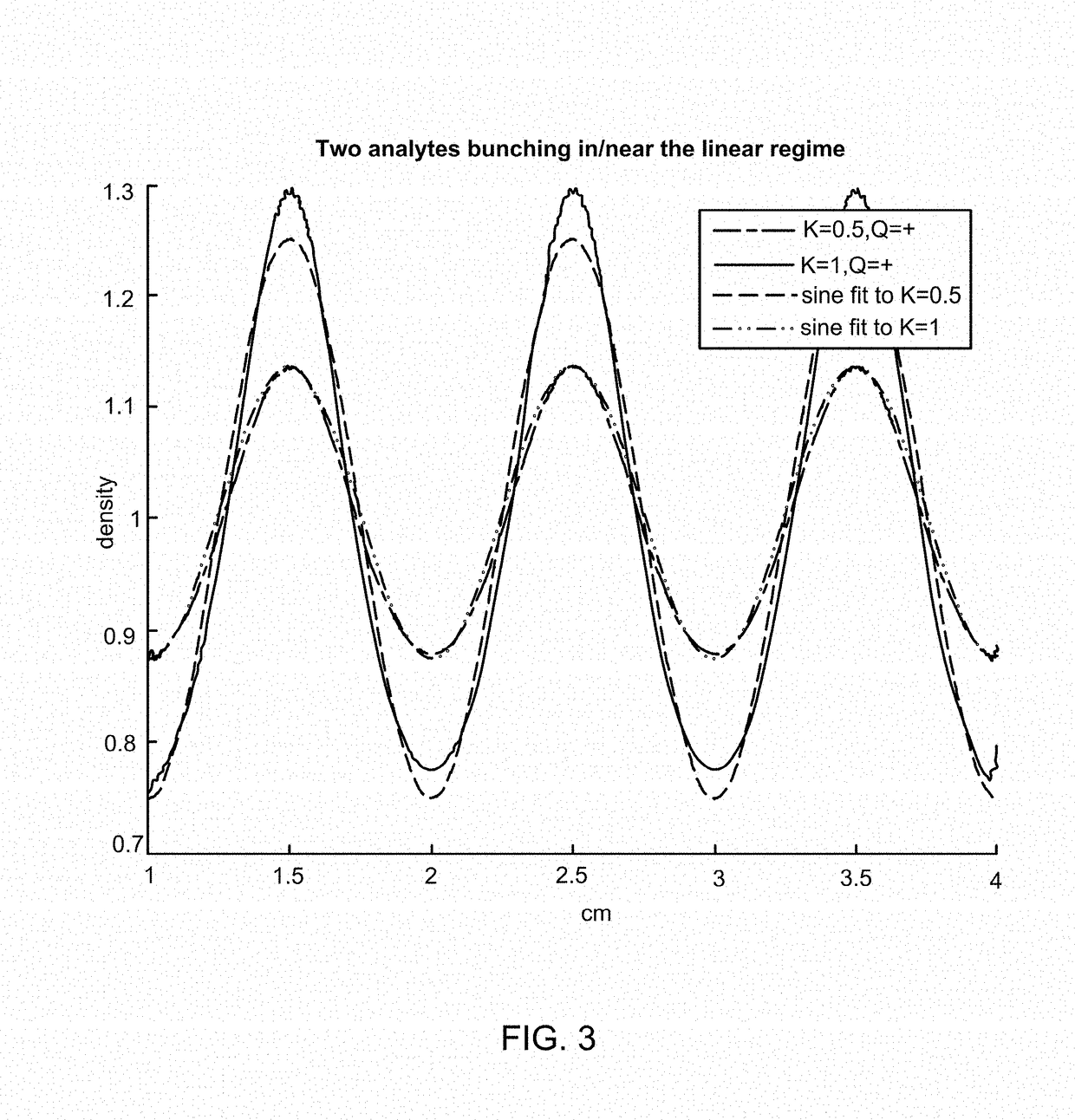Tandem Ion Modulator for Characterizing Larger Biomolecules in a Differential Mobility Spectrometer
a technology of differential mobility and modulator, applied in the field of analytical machinery and the identification and separation of molecules, can solve the problems of difficult bunching of low mobility ions, and achieve the effect of difficult bunching and large ac ion current modulation
- Summary
- Abstract
- Description
- Claims
- Application Information
AI Technical Summary
Benefits of technology
Problems solved by technology
Method used
Image
Examples
Embodiment Construction
[0021]While this invention is susceptible of embodiment in many different forms, there are shown in the drawings, which will herein be described in detail, several specific embodiments with the understanding that the present disclosure is to be considered as an exemplification of the principals of the invention and is not intended to limit the invention to the illustrated embodiments.
[0022]We disclose an ion modulating differential mobility spectrometer for measuring the linear mobility of a selected differential mobility. For instance, ions first pass through a differential mobility spectrometer (hereinafter, “DMS”) which selects ions with low or zero differential mobility. Significantly, this step may remove reactant ions, for example, charged water complexes, leaving only large ions and their adducted molecules. Ions may pass from the DMS through an ion modulator which applies a longitudinal AC field. The longitudinal AC field may cause ions to bunch by alternately pushing and pu...
PUM
| Property | Measurement | Unit |
|---|---|---|
| length | aaaaa | aaaaa |
| length | aaaaa | aaaaa |
| voltages | aaaaa | aaaaa |
Abstract
Description
Claims
Application Information
 Login to View More
Login to View More - R&D
- Intellectual Property
- Life Sciences
- Materials
- Tech Scout
- Unparalleled Data Quality
- Higher Quality Content
- 60% Fewer Hallucinations
Browse by: Latest US Patents, China's latest patents, Technical Efficacy Thesaurus, Application Domain, Technology Topic, Popular Technical Reports.
© 2025 PatSnap. All rights reserved.Legal|Privacy policy|Modern Slavery Act Transparency Statement|Sitemap|About US| Contact US: help@patsnap.com



